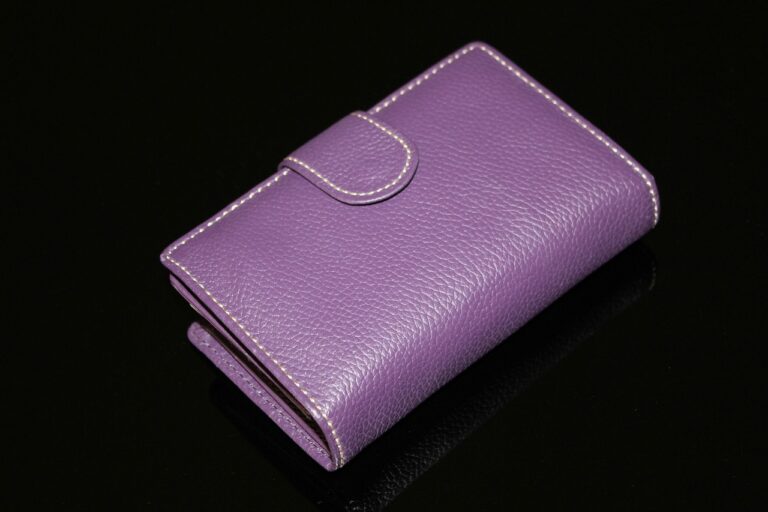Fashion Retailers’ Role in Promoting Sustainable Cultural Tourism: Allexchbet com login, 99exch.com, All panel
allexchbet com login, 99exch.com, all panel: Fashion retailers play a crucial role in promoting sustainable cultural tourism by showcasing and celebrating the unique cultural heritage of different regions around the world. Through their marketing efforts, collaborations with local artisans, and commitment to ethical and sustainable practices, fashion retailers can help preserve traditional craftsmanship, support local communities, and attract tourists interested in experiencing authentic cultural experiences.
Fashion Retailers as Cultural Ambassadors
Fashion retailers have the power to influence trends and shape perceptions of different cultures through their collections and campaigns. By incorporating traditional craft techniques, indigenous fabrics, and cultural motifs into their designs, fashion retailers can introduce consumers to the rich heritage and history of various communities. This not only helps preserve these traditions but also educates consumers about the significance of cultural diversity and encourages them to support and engage with local artisans and businesses during their travels.
Collaborations with Local Artisans
One of the most effective ways for fashion retailers to promote sustainable cultural tourism is by collaborating with local artisans and craftsmen. By partnering with skilled artisans from different regions, fashion retailers can create unique and authentic products that celebrate traditional techniques and craftsmanship. These collaborations not only provide artisans with a platform to showcase their skills but also help preserve their cultural heritage and generate income for their communities.
Ethical and Sustainable Practices
Fashion retailers can also promote sustainable cultural tourism by adopting ethical and sustainable practices throughout their supply chain. By sourcing materials responsibly, reducing waste, and supporting fair labor practices, fashion retailers can minimize their environmental impact and contribute to the well-being of local communities. This commitment to sustainability not only resonates with environmentally conscious consumers but also attracts tourists who are looking for authentic and meaningful experiences during their travels.
Marketing Cultural Experiences
In addition to incorporating cultural elements into their products, fashion retailers can also promote sustainable cultural tourism through their marketing efforts. By highlighting the cultural significance of their collections, sharing the stories of the artisans behind the products, and partnering with local organizations and tourism boards, fashion retailers can inspire tourists to explore and appreciate the cultural heritage of different destinations. This not only drives traffic to local businesses and attractions but also fosters a deeper connection between travelers and the communities they visit.
Empowering Local Communities
Fashion retailers have the opportunity to empower local communities and support sustainable development through their engagement with cultural tourism. By investing in education and skills training programs, providing access to markets, and creating opportunities for economic growth, fashion retailers can help preserve traditional crafts, empower artisans, and create a sustainable future for communities around the world. This investment not only benefits the local economy but also enhances the cultural authenticity and integrity of the destinations visited by tourists.
Building a Sustainable Future
In conclusion, fashion retailers play a vital role in promoting sustainable cultural tourism by showcasing and celebrating the unique cultural heritage of different regions, collaborating with local artisans, adopting ethical and sustainable practices, marketing cultural experiences, and empowering local communities. By leveraging their influence and resources, fashion retailers can help preserve traditional crafts, support local economies, and create meaningful connections between travelers and the cultural heritage of the destinations they visit. Together, we can build a more sustainable future for cultural tourism that benefits both the communities it touches and the travelers who seek authentic and enriching experiences.
FAQs
Q: How can fashion retailers support local artisans in their communities?
A: Fashion retailers can support local artisans by collaborating with them on product designs, providing them with training and resources, and creating opportunities for them to showcase their skills and craftsmanship.
Q: What are some examples of fashion retailers who have successfully promoted sustainable cultural tourism?
A: Companies like Patagonia, Stella McCartney, and Eileen Fisher are known for their commitment to sustainability and ethical practices. They have partnered with artisans from different regions, incorporated traditional craft techniques into their collections, and promoted cultural tourism through their marketing efforts.
Q: How can consumers support sustainable cultural tourism?
A: Consumers can support sustainable cultural tourism by purchasing products from fashion retailers that promote ethical and sustainable practices, supporting local artisans and businesses during their travels, and educating themselves about the cultural heritage of the destinations they visit.
Q: What are some ways fashion retailers can reduce their environmental impact?
A: Fashion retailers can reduce their environmental impact by sourcing materials responsibly, minimizing waste, using eco-friendly packaging, and implementing energy-efficient practices throughout their supply chain.







